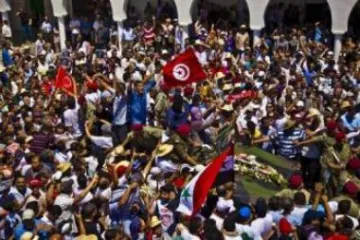NEH Grant Funds Summer Program On Middle Eastern Millennials

The University of Arizona (UA) Center for Middle Eastern Studies (CMES) has received a $90,000 grant from the National Endowment for the Humanities to host a one-week summer institute for college and university teachers. The program will serve 28 post-secondary educators, mostly professors at community colleges and small, undergraduate-serving liberal arts colleges, many of them minority-serving institutions. Held at the University of Arizona in Tucson during the first week of August 2019, the institute will explore the theme of “Middle Eastern Millennials through Literature, Culture, and Media.” Co-Directors Lisa Adeli, CMES Director of Educational Outreach, and Maha Nassar, a Middle East and North African Studies (MENAS) Associate Professor of cultural and intellectual history of the Arab world, will engage participants in a cross-disciplinary study of Middle East diversity and change through a focus on youth. The program will also focus on curriculum development and ensure a wide dissemination of the materials created.
The theme of the institute was carefully chosen to be informative, practical, and engaging, both to college educators and to the students that they teach. Through a variety of humanities disciplines (history, literature, gender studies, religion, the arts, media) and different types of information (scholarly articles, book chapters, films, talks), participants will gain diverse perspectives on many complex issues facing the contemporary Middle East.
The focus on Middle Eastern millennials – young people from their late teens to early thirties – provides especially important insights into Middle Eastern societies and the transformations they are undergoing. Youth make up 60% of the population of most Middle Eastern countries, so their very numbers indicate an important impact. Further, their age and technological savvy ensure that their influence will continue – and grow – in the future.
The study of millennials also has important curricular implications, which will greatly benefit participants’ students. The institute will look at changing historical concepts of youth (in the Middle East and worldwide), ethnic identifications, the role of youth in modern political movements, changing notions of gender and sexuality (with generational as well as individual differences), and various religious approaches (views toward and identification with organized religions, attitudes toward other faiths). The variety of issues and humanities disciplines will create many opportunities for educators to apply their learning to their curricula. The resulting projects will prove engaging to students, millennials themselves, who will have an intrinsic connection to the topic.
This $90,000 award is one of only six grants to programs hosting summer institutes for college and univeristy teachers. CMES, along with MENAS and the College of Social and Behavioral Sciences, are thrilled to bring its expertise in Middle Eastern Studies to a national audience.

